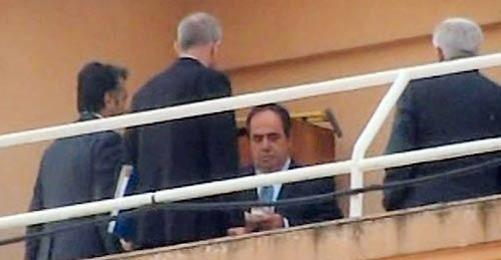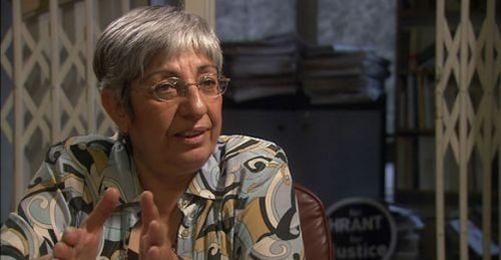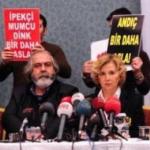The Constitutional Court cancelled the law which regulated that soldiers involved in organized crime are to be tried before civil courts.
The decision of the cancellation will take effect only after it was promulgated in the Official Gazette, so the court also decided for stay of execution. This means that pending trials and ongoing investigations are affected by the decision as well.
What is the decision about?
In the decision taken on 21 January, the court abolished amendments of the Criminal Procedural Code (CMK).
Thus, article 250/3rd paragraph of the CMK is amended as follows due to the decision:
"Regardless of what their title and position is, those who commit the crimes mentioned in the first paragraph shall be tried by the high criminal courts assigned by this Law. Provisions regarding the people to be tried by the Constitutional Court and Court of Appeals as well as provisions on the duties of the military courts are preserved".
The preceding amendment, passed through the parliament by the government on 26 June 2009 and enforced on 9 July, restricted the military courts' authority regarding organized crimes to "martial law and state of war":
"Regardless of what their title and position is, those who commit the crimes mentioned in the first paragraph shall be tried by the high criminal courts assigned by this Law. Provisions regarding the people to be tried by the Constitutional Court and Court of Appeals as well as provisions on the duties of the military courts in case of war and martial law situations are preserved".
Military courts' scope of authority expanded again
Consequently, the jurisdiction of military courts has been expanded again to the scope of article 145 of the Constitutional Court:
"Military justice shall be exercised by military courts and military disciplinary courts. These courts shall have jurisdiction to try military personnel for military offences, for offences committed by them against other military personnel or in military places, or for offences connected with military service and duties".
"Military courts also have jurisdiction to try non-military persons for military offences specified in the special law; and for offences committed while performing their duties specified by law, or against military personnel on military places specified by law".
The reasons for the cancellation decreed by the Constitutional Court will only be known after the corresponding promulgation in the Official Gazette.
The decision emerged form a case opened by Republican People's Party (CHP) MPs Hakkı Süha Okay, Kemal Kılıçdaroğlu and Kemal Anadol.
Many trials and investigations will be affected
The decision is expected to affect a large number of pending trials and ongoing investigations.
It will apply for instance to investigations in the context of the Ergenekon case, the JİTEM case trying Colonel Cemal Temizöz or the Şemdinli case, which was transferred form a military court to a civil court.
"Militarism is strengthened"
Retired judge and lawyer Ümit Kardaş assessed the decision as a step backwards which "strengthens militarism". According to Kardaş, retired military staff such as Ergenekon defendants Hurşit Tolon, Şener Eruygur, Levent Ersöz or Arif Doğan will not be affected by the amendment. However, investigations and trials regarding soldiers active on duty will be transferred again to military courts.
"For example the investigation related to Dursun Çiçek; proceedings like investigations concerning the 'cosmic room' at the Special Forces Command in Ankara will be affected", Karkaş indicates.
The Human Rights Association (İHD) commented: "Democratization cannot be realized as long as military judicial tutelage continues". In an announcement released on Friday (22 January), İHD reminded that the constitution of 12 September subsequent to the military coup in 1980 was based on military tutelage. "The ruling Justice and Development Party (AKP) does not take any steps towards democratization but came to a point where it does not even investigate coup attempts like the "balyoz plan" against the government", İHD argued.
"AKP sealing its fate"
İHD pointed out that the government, who should "democratically cooperate with the public" to the contrary does not prevent interrogations and detentions of Kurdish politicians, human rights defenders, unionists, students, intellectuals and writers by subordinate police forces. "The government is not aware of the fact that it is sealing its fate with this kind of politics". (TK/VK)













